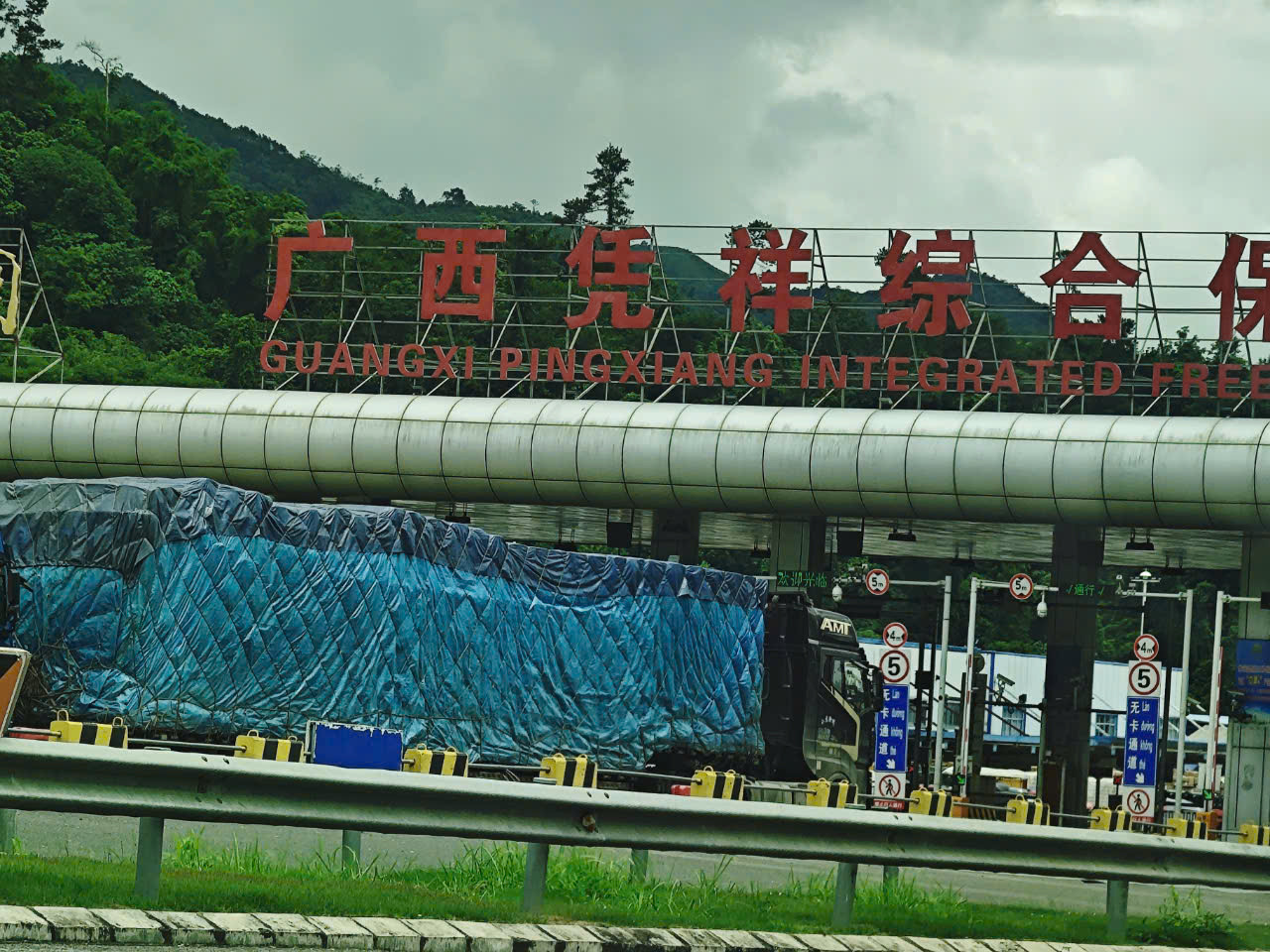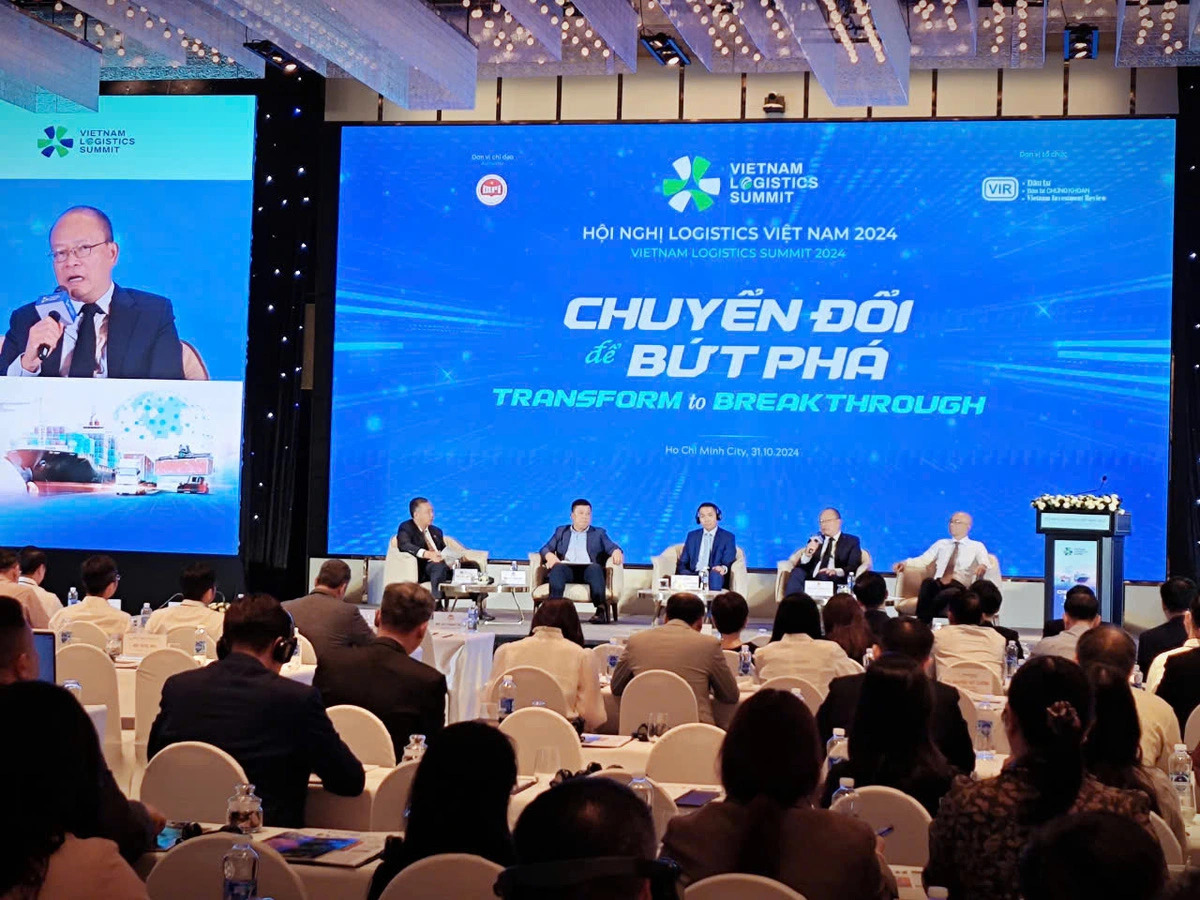Vietnam can begin to narrow its competitive gap with cheaper Chinese products sold online via e-commerce platforms by building up logistics infrastructure with dedicated investment and strong collaboration across ministries, local authorities, and businesses, according to recommendations experts offered at a recent logistics event.
Vietnam’s domestic market is under growing pressure from low-cost products offered by Chinese e-commerce giants like Temu, Shein, and Taobao, leaving local products struggling to compete.
At the Vietnam Logistics Summit 2024, themed 'Transform to Break Through' and hosted by Vietnam Investment Review in Ho Chi Minh City on Thursday, industry leaders and experts gathered to discuss strategies to help Vietnam manage this price competition.
Learning from China’s logistics success
Participants elaborated that thanks to low logistics costs, these Chinese e-commerce giants have undercut local businesses in Vietnam by flooding the Vietnamese market with a huge volume of affordable Chinese goods.
Both Tran Thanh Hai, deputy head of the Import and Export Department, under the Ministry of Industry and Trade, and Yap Kwong Weng, CEO of Vietnam SuperPort, attributed China’s competitive edge in delivering low-cost products to its strong logistics network, backed by substantial government investment in highways, railways, as well as large-scale and modern logistics hubs.
Vietnam SuperPort is a multimodal logistics hub led by YCH Group, a leading integrated end-to-end supply chain management and logistics partner operating across the Asia-Pacific region.
The Chinese government has also offered consistent policies, tax, and land incentives, while streamlining regulations that encourage Chinese logistics companies to expand their business at home and abroad, which has in turn kept costs low and efficiency high.
Meanwhile, Vietnam is capable of churning out products similar to Chinese commodities, but higher logistics costs raise the Vietnamese goods’ retail prices.
Vietnam’s small-scale logistics centers mainly cater to domestic needs and are weakly connected to international transport networks.
Large facilities like cold storage units, agricultural warehouses, and specialized storage hubs are still underdeveloped.
This fragmented logistics system drives up costs for storage, transport, and distribution, creating challenges for local products in competing with Chinese imports, Hai explained.
|
|
| Industry leaders and experts discussed strategies to help Vietnam narrow its competitive gap with low-cost Chinese imports at the Vietnam Logistics Summit 2024, themed ‘Transform to Break Through' and hosted by Vietnam Investment Review, in Ho Chi Minh City, October 31, 2024. Photo: Cong Trung / Tuoi Tre |
Urgent need to develop large-scale logistics hubs
At the event, experts recommended the establishment of free trade zones and large-scale logistics hubs in key economic regions.
These regions, free from tax obligations and administrative requirements, would allow companies to store goods and perform value-added services like packaging, sorting, and international distribution.
Some localities like Da Nang City, Hai Phong City, and Ba Ria - Vung Tau Province have proposed piloting free trade zones.
Vietnam could also transform some of its border crossings with China, such as those in Lang Son and Lao Cai Provinces, into smart logistics zones to enable round-the-clock customs clearance.
The pundits explained that this move would cut time and costs for import-export activities while enhancing the competitiveness of Vietnamese products in both China and neighboring markets.
A Ministry of Planning and Investment representative remarked that various ministries are actively working to make significant improvements in logistics infrastructure.
Bui Thien Thu, head of the Vietnam Inland Waterways Administration under the Ministry of Transport, mentioned close collaboration among ministries, local authorities, and businesses.
He also insisted on substantial investment in free trade zones, specialized logistics centers, and a smart transportation system to help Vietnam close its logistics gap with China.
Like us on Facebook or follow us on X to get the latest news about Vietnam!



















































